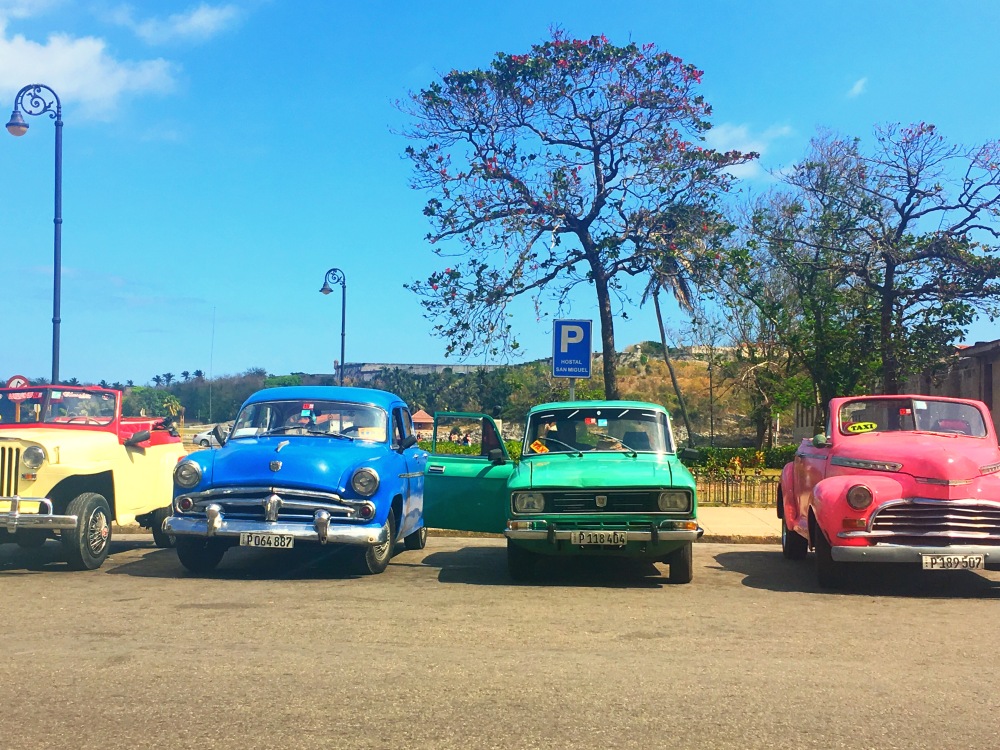(This is part of the Jersey City in Havana Series, multimedia stories produced by St. Peter’s students who spent Spring Break in Cuba.)
Consistently low state-regulated salaries and massive layoffs of government employees have led many Cuban citizens to pursue self-employment within the tourism industry.
by Gabriella Robles and Neidy Gutierrez
For Havana native Angel Ramon, the ability to make music is what gives his life meaning, but it is also what gives him the means to survive. After receiving his Bachelor’s degree, Ramon found that singing is his happiest and most effective way of making money in Cuba’s struggling economy.
About 80 percent of Cuban citizens work for the state, earning an average of $29 CUC (US $29), but most of these people also have some independent work to supplement their income. These side jobs are typically related to the tourism industry including taxi driving, musical entertainment, and restaurant business.

Ramon provides musical entertainment at a state-owned hotel but decided to also work nights at an independently-owned restaurant in Old Havana for the extra cash.
“The money I make depends on the customers that come but it could be $10 or $15 [per night]. Money I make apart from this job is at a business hotel where, more or less, I make 100 or something dollars a month,” Ramon said.
He found the money he was making by performing for tourists was a great improvement to what he would be making if he pursued a profession related to his Bachelor’s degree in economics.
“My initial profession is economics. I studied economics. But later, I was just singing—only music,” said Ramon. “What happens is that when musicians are in important places they collect good tips and live a little better.”
Cuban citizens have found it increasingly difficult to find jobs that meet both their professional aspirations and their salary expectations since the fall of the Soviet regime—also known as the Special Period. During this time, the Cuban government no longer had the economic support to appropriately compensate its state workers.
Former Cuban president Raúl Castro has acknowledged in one of his most critical speeches that these state wages “do not satisfy all the needs of the worker and his family.” For example, on average, a privately-owned taxi driver makes at least $60 CUC (US $60) a day: whereas, a Cuban doctor is typically paid $40 CUC a month, according to published reports.

In 2011, the president launched economic reforms that raised the salaries of government workers (from an average of 400 CUP to 740 CUP by 2016) but this also coincided with massive layoffs of about one million public employees.
This has caused those like Ramon to abandon their initial field of study in an effort to make a decent living. In the throes of this economic reorganization, many have turned to private means of income.
According to the Pew Research Center, more than 424,000 Cubans were classified as self-employed in 2013 while fewer than 144,000 Cubans were self-employed in 2009. Estimates are that each private employer license results in 4 private employees.
According to a Washington Post survey conducted in 2015, 79 percent of Cubans said they wanted to start their own private business.
Cuban citizens are especially looking for work that provide contact with international tourists, including hostels, taxi driving, mom-and-pop restaurants. This is not a surprise considering the drastic increase in tourism since Castro and President Barack Obama re-established diplomatic relations in 2015, which made Cuba a destination for nearly 5 million visitors a year even with recent cutbacks from the Trump administration.
Music is a vital part of Cuban culture, but it also provides economic stability. For Ramon, the fact that singing is his best economic opportunity is a win-win. He is able to do what he loves, speak with locals and tourists alike, and make a decent living in the process.
“Well, for me, music is the soul of the citizens,” he said. “That is why Cuba is a country rich in culture.”